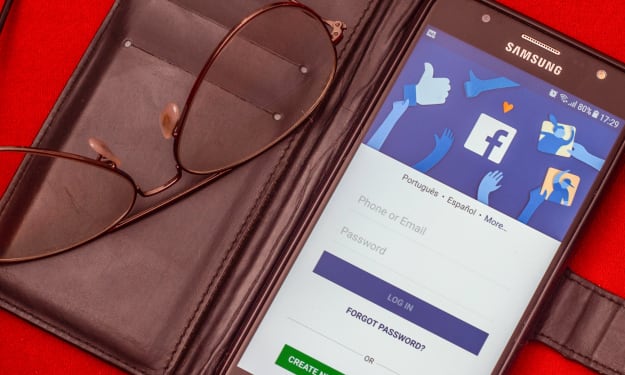Counseling Profession: Discovering and Establishing Professional Identity in the Field
Let the professional adventure begin!

Abstract
The purpose of this study is to explore the counseling professions collective and individual process of establishing and discovering professional identity. The complexities and unique pathways in establishing counselor identity are considered. A summary of two scholarly articles and one podcast are given and a reaction to the material is expressed and presented. Challenges within the counseling profession are discussed. Challenges such as lack of national licensing, issues with portability, and the public’s perception of the profession within the community. The community, or public’s perception of the counseling profession may prove to have a larger impact on the type of marketing that is most effective when promoting counseling services. The counselor identity correlates to the perception of, and relationship with the public. Establishing counselor identity is shown to be established through personal value systems, worldviews, and emotional intelligence. Lastly, an overall spirit of optimism and hope for the professions futuristic betterment are outlined.
Summary of Articles and Podcast
In summary of Spurgeon’s article Counselor Identity – A National Imperative, in one of his opening points, he acknowledges that there is an overwhelming lack of uniformity in the field of counseling on a national scale. He goes on to present the utter importance of establishing professional identity, the collect identity that has already been recognized, and he provides a concise definition of counseling. The reader is informed of the seven principles of the 20/20: A Vision for the Future of Counseling initiative which was originally inspired with the intention of coming to a more collective consensus on counseling principles, gaining uniformity, and spreading awareness throughout the community.
Spurgeon gives examples of specific historical events which lead to the growth, or insurgence, of counseling specialties within the counseling profession. For example, the Sputnik launch was an event that triggered the perceived need for more focused school counseling to help steer students into STEM pathways (Spurgeon 2012). In the article, other historical events were also discussed which lead to the ultimate conception and growth of psychological and rehabilitation counseling.
Spurgeon covers information about common training curriculum and he also raises the issue the portability as being a major concern. He makes it evident that the ACA Code of Ethics assists the counselor relate to and build a professional relationship with the client. The ACA Code of Ethics works to provide the proper framework for the profession and the boundaries that are needed within it. Spurgeon also makes it very clear that there are too many variations between the states as far as the counselor licensure requirements are concerned and he alludes to the challenges licensed counselors face within the ever-changing, transient society of today.
In Lile’s article “Forming a professional counselor identity: The Impact of identity processing style,” he focuses on studying a sample of graduate students in which he acknowledges that there is quite a broad spectrum of worldviews that counselor have, thus would lead to the overall field of counseling to experience collective professional identity confusion (Lile 2017). In Lile’s work, he informs and compares the differences between diffuse/avoidant style, normative and informational styles when tackling professional identity mentalities in the counseling profession (Lile 2017). Samples of some of the scaling systems, statistics, and questions were shared within this work in order to gain understanding on the graduate students developing identity styles. In the analysis of the results, the survey indicates correlations between the age of the counselor and the number of classes that they had completed and/or completion of a specific amount of internship and practicum hours.
Interestingly enough, “no significant differences were found between the informational and normative styles regarding the overall PIVS scores” (Lile 2017). The study also concluded that engagement in the informational style reflected better on the establishment of professional identity whereas the avoidant/normative style indicated the least amount of support in building counselor’s professional identity. Lastly, the study admitted to the limited aspects of the research as it did not cover a significant amount of time and the sample size had a seemingly imbalanced demographic majority of white females.
In summary of Shook’s podcast, “EP137: What On Earth Shall We Call Ourselves? Challenging the NCC/LPC/LMHC Acronym Soup with Donna Sheperis,” Dr. Sheperis provides her personal academic background, how she landed in the counseling profession and she then explores the various credentialing acronyms within the counseling profession (Shook 2019). A valid concern was raised about the possible divide between counseling professionals understanding of the acronyms versus how the public or potential clients view, understand and relate to these acronyms when seeking professional help. Interestingly enough, after conducting a study involving business cards presented to a sample group in the public the statistics and research indicated that when people saw that the counselors who were listed as being board certified that they always preferred these counselors over the ones that were simply listed as being licensed. Even before the study was published, it gained traction with the certifying board and terminology was changed and there appeared to have been a positive response in the public’s overall view. In this thought-provoking podcast, the idea that portability within the counseling profession may have the chance to become more unified as a result of changing terminology and simple acronyms was also explored.
Reactions
In response to the articles and podcast, it is evident in my mind that the counseling profession has a lot further to grow collectively than I would ever have expected. Admittedly, it is overwhelming to hear how ununified the counseling profession is in all actuality. It is evident that each counselor has a matrix of circumstances and happenstances which all lead them to the career of being a licensed counselor. In some ways the counseling profession appears to be fluid to adapting to change and yet in other ways it would seem to be resistant to adopting change. Given the lack of not having a national licensing board, I have to wonder if there are basic elements that would assist the profession such as a professional motto or foundational motto like that of the medical profession and their common term: “first do no harm.”
It is also clear that there are continued challenges pertaining to the desperate need for the counseling profession to build and repair compromised relationships with other human service providers. Competition aside, each healthcare service and human service rely on each other in paramount ways and it would be fitting for them to all work together to harmoniously serve the public. There is a legitimate need for the counseling profession to develop a stronger presence in the local communities and proving the ability to be exemplary advocates for the field.
It could not be more apparent, or resoundingly clear, that all human beings face universal problems pertaining to their mental health. Knowing this, it makes one marvel and confirms my understanding that there are also universal solutions to such mental health issues. If there are universal solutions that can be discovered, and it would also seem that some level of national portability could be reached or agreed upon as well. Though each client will possess a unique story to share, the counseling profession has the potential to tap into universal truth and graciously allow the client to be the one to steer themselves into such conclusions.
References
Lile, J. J. (2017). Forming a professional counselor identity: The Impact of identity processing style. The Journal of Counselor Preparation and Supervision, 9(2), doi:10.7729/92.1163
Shook, M. (Producer). (2019, August 6). EP137: What On Earth Shall We Call Ourselves? Challenging the NCC/LPC/LMHC Acronym Soup with Donna Sheperis [Audio Podcast]. The Thoughtful Counselor. Retrieved from https://thethoughtfulcounsleor.com/?p=227330.
Spurgeon, S. (2012). Counselor identity: A national imperative. Journal of Professional Counseling, Practice, Theory, and Research, 39, 3-16.
About the Creator
Rowan Finley
Father. Academic Advisor. Musician. Writer. Aspiring licensed mental health counselor. My real name is Jesse Balogh.






Comments
There are no comments for this story
Be the first to respond and start the conversation.